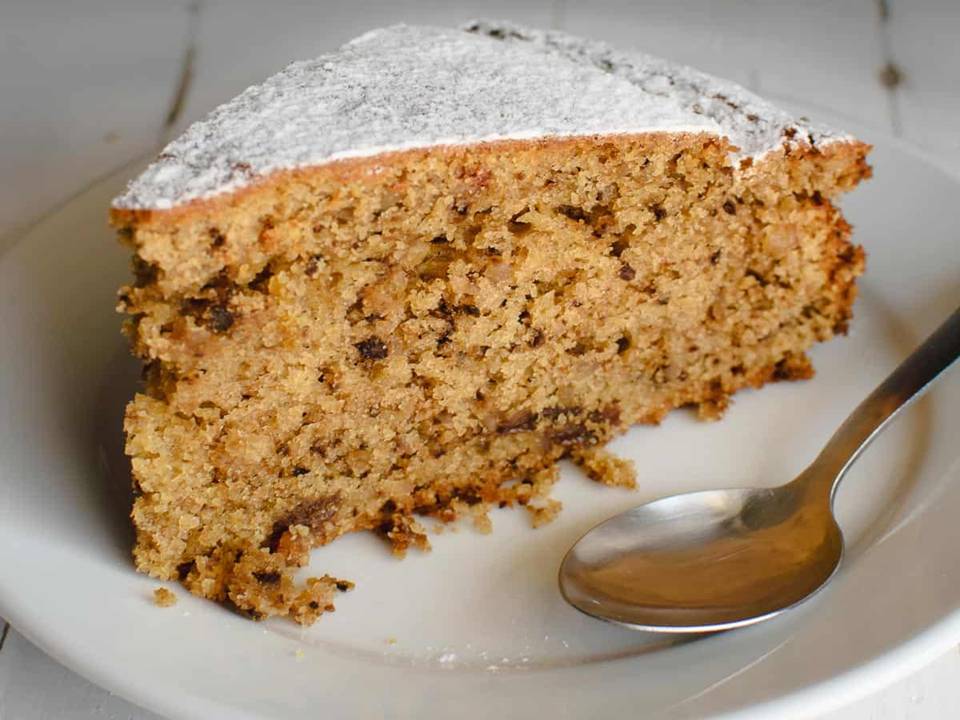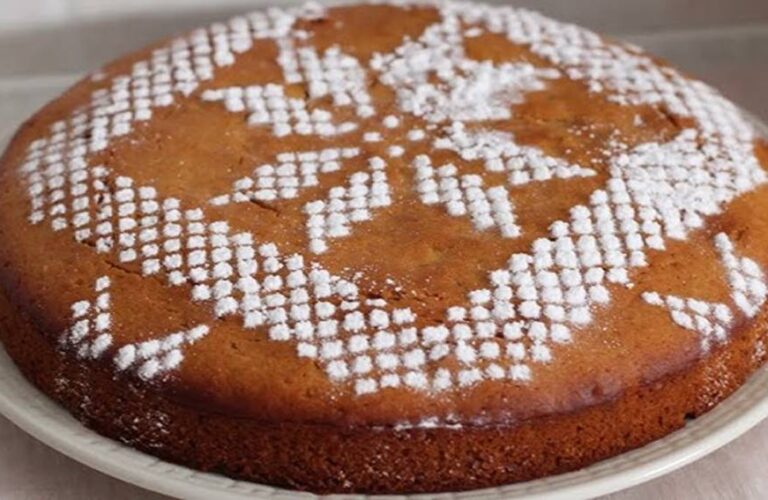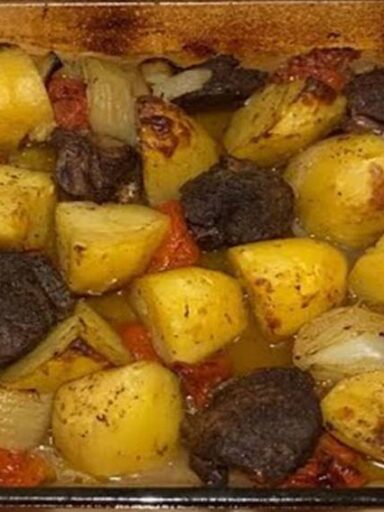The Traditional Greek Fanouropita
Fanouropita, also called Saint Fanourios Cake, is a traditional Greek dessert made in honour of Saint Fanourios, the patron saint of lost things. This rich, vegan cake plays an important role in Greek Orthodox tradition. People bake it to ask Saint Fanourios for help—either to find lost objects or to receive guidance in tough times.
Many prepare and share the cake on August 27th, the feast day of Saint Fanourios. Others bake it whenever they pray to recover something lost. This “something” might be a physical item or something less tangible, like peace or clarity. In Greek Orthodox practice, bakers often offer the cake as a gesture of devotion. They ask Saint Fanourios to step in and help. A unique tradition also says that you must share the cake only with people who have married once. Otherwise, your prayer may go unanswered.
Origins and Significance
The story of Fanouropita weaves through centuries of Greek religious and cultural history. Saint Fanourios first appeared in records during the 14th century. His legend began with the discovery of an icon on the island of Rhodes. The icon showed the saint holding a lit candle and a cross, surrounded by twelve scenes of his martyrdom. No one knows the full details of his life, but many venerate him as a protector and guide. People especially call on him to help find lost things or to bring light to lost souls.
Key Characteristics of Fanouropita
Ingredients: Most recipes include either 7 or 9 ingredients, numbers with spiritual meaning in the Greek Orthodox faith. The number 7 represents spiritual completeness. The number 9 reflects the nine orders of angels.
Flavour: Fanouropita tastes warm and spiced. The texture is slightly dense because it contains no eggs or dairy. Olive oil and orange juice make it moist and rich.
The Ritual and Sharing
After baking the cake, many take it to church for a blessing. Once blessed, they share it with family and friends. This act of sharing holds deep meaning. According to tradition, once people eat the cake, Saint Fanourios may intercede and help those who took part.
Fanouropita reflects the heart of Greek Orthodox tradition. It blends faith, food, and community in a meaningful ritual that honours a beloved saint.
Conclusion
Fanouropita is more than just a cake; it is a symbol of faith, community, and tradition in Greek culture. Whether made to honour the saint, to seek his help, or simply to enjoy a slice of Greek heritage, Fanouropita connects people to a centuries-old tradition that continues to inspire and comfort believers today.

Here’s a traditional recipe for Fanouropita
Ingredients:
3 cups all-purpose flour
1 cup sugar
1 cup fresh orange juice
1/2 cup olive oil (or vegetable oil)
1/2 cup water
1 teaspoon baking soda
1 teaspoon baking powder
1 teaspoon ground cinnamon
1/2 teaspoon ground cloves
1/2 cup raisins (optional)
1/2 cup chopped walnuts (optional)
Zest of 1 orange
Instructions:
Preheat the Oven: Preheat your oven to 350°F (180°C). Grease a round or square baking pan, or line it with parchment paper.
Mix the Wet Ingredients: In a large mixing bowl, combine the olive oil, sugar, orange juice, and water. Stir until the sugar is dissolved.
Add the Baking Soda and Baking Powder: Add the baking soda to the mixture, and stir well. It may bubble up slightly because of the reaction with the orange juice, which is normal. Add the baking powder next and mix thoroughly.
Incorporate the Dry Ingredients: In a separate bowl, sift together the flour, cinnamon, and cloves. Gradually add the dry ingredients to the wet mixture, stirring gently until just combined. Be careful not to overmix.
Add Raisins and Walnuts (Optional): If you’re using raisins and/or walnuts, fold them into the batter.
Bake the Cake: Pour the batter into the prepared pan, spreading it evenly. Bake in the preheated oven for about 40-50 minutes, or until a toothpick inserted into the centre comes out clean.
Cool and Serve: Allow the Fanouropita to cool in the pan for about 10 minutes, then transfer it to a wire rack to cool completely. You can dust it with powdered sugar before serving if desired.
Notes:
Variations: Some recipes include additional spices like nutmeg or different nuts, depending on personal preference.
Sharing: It’s customary to share this cake with others, especially if you’re asking for Saint Fanourios’ intercession to find something lost.
Enjoy your Fanouropita, and may it bring blessings to you and those you share it with!




